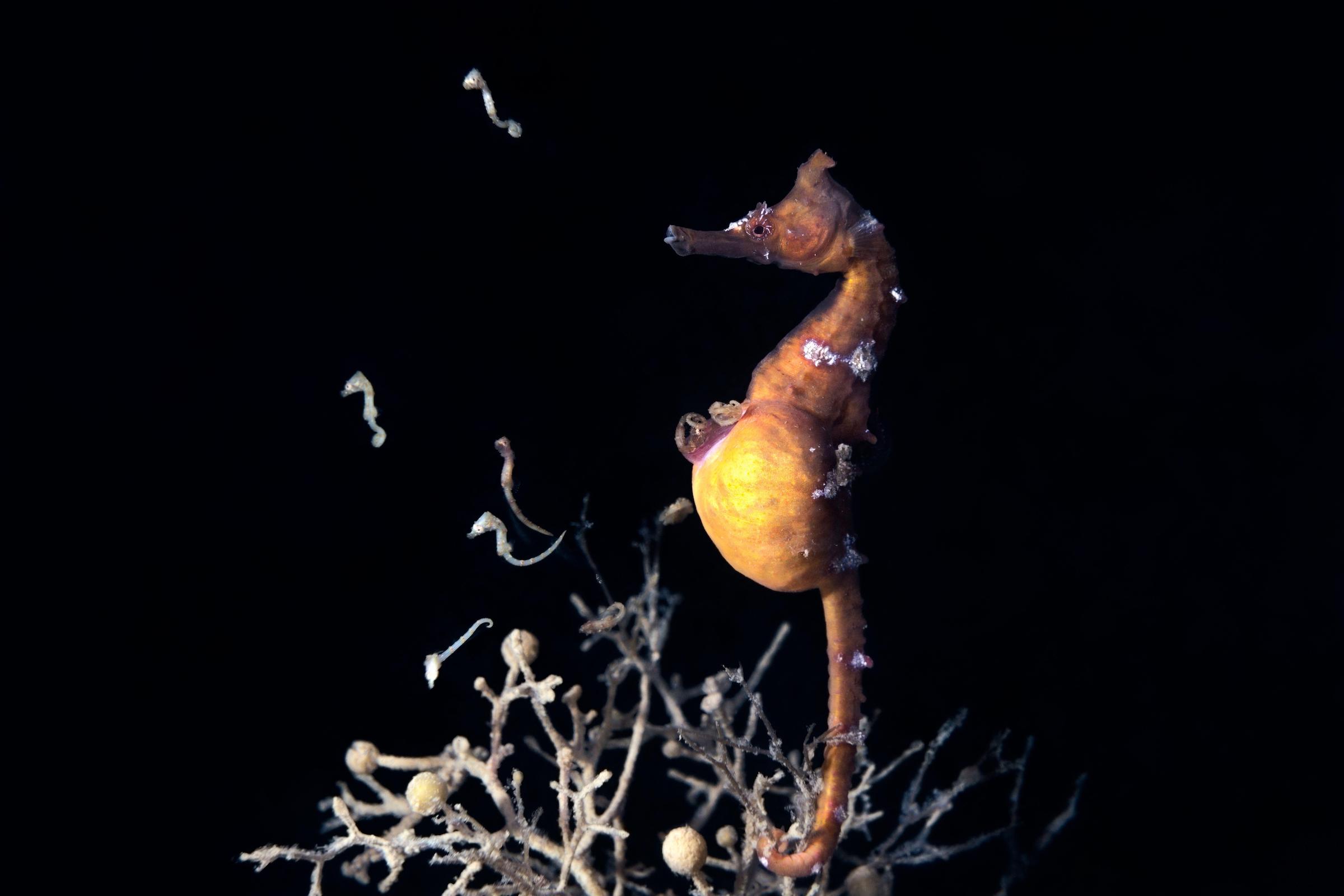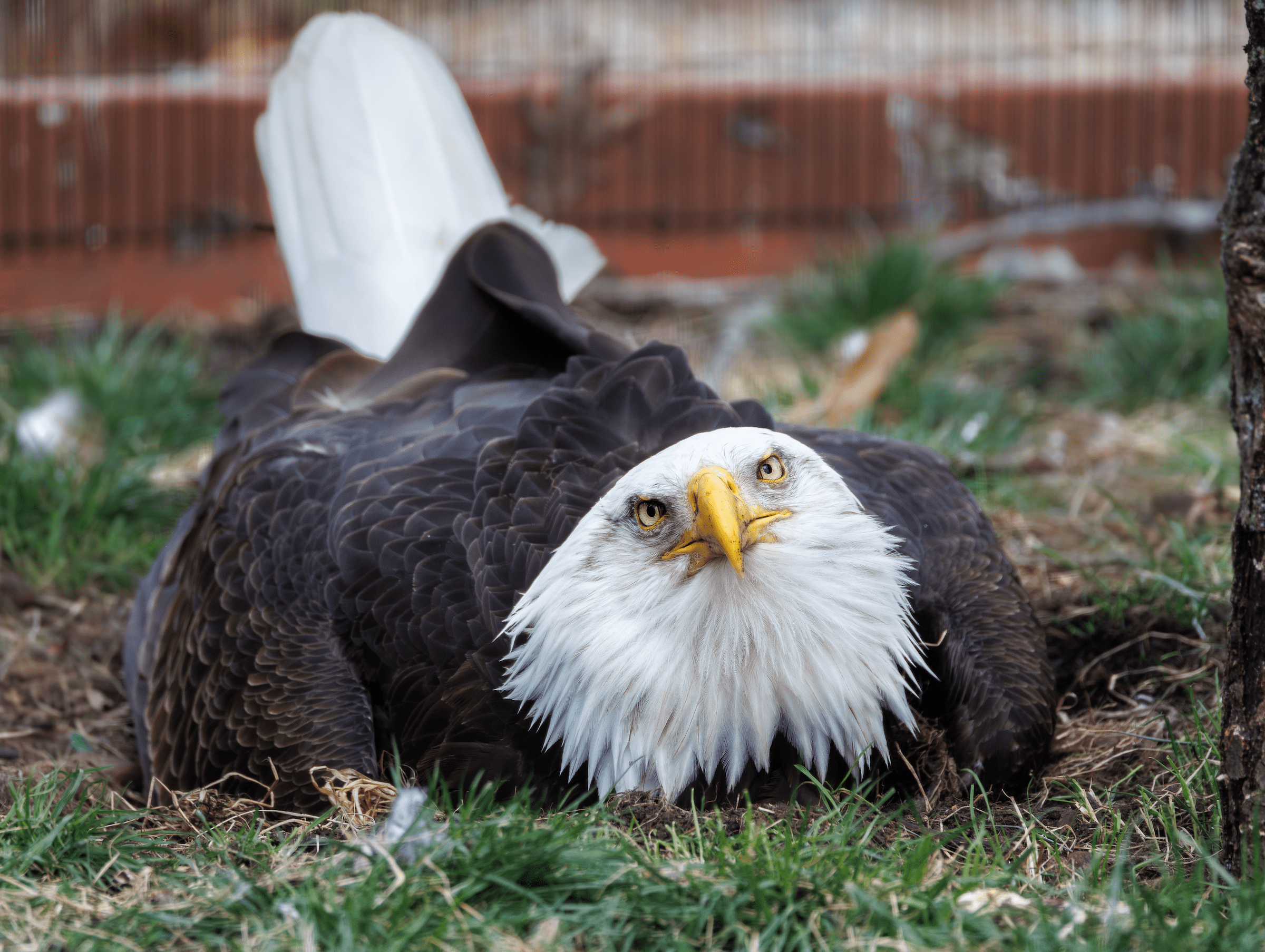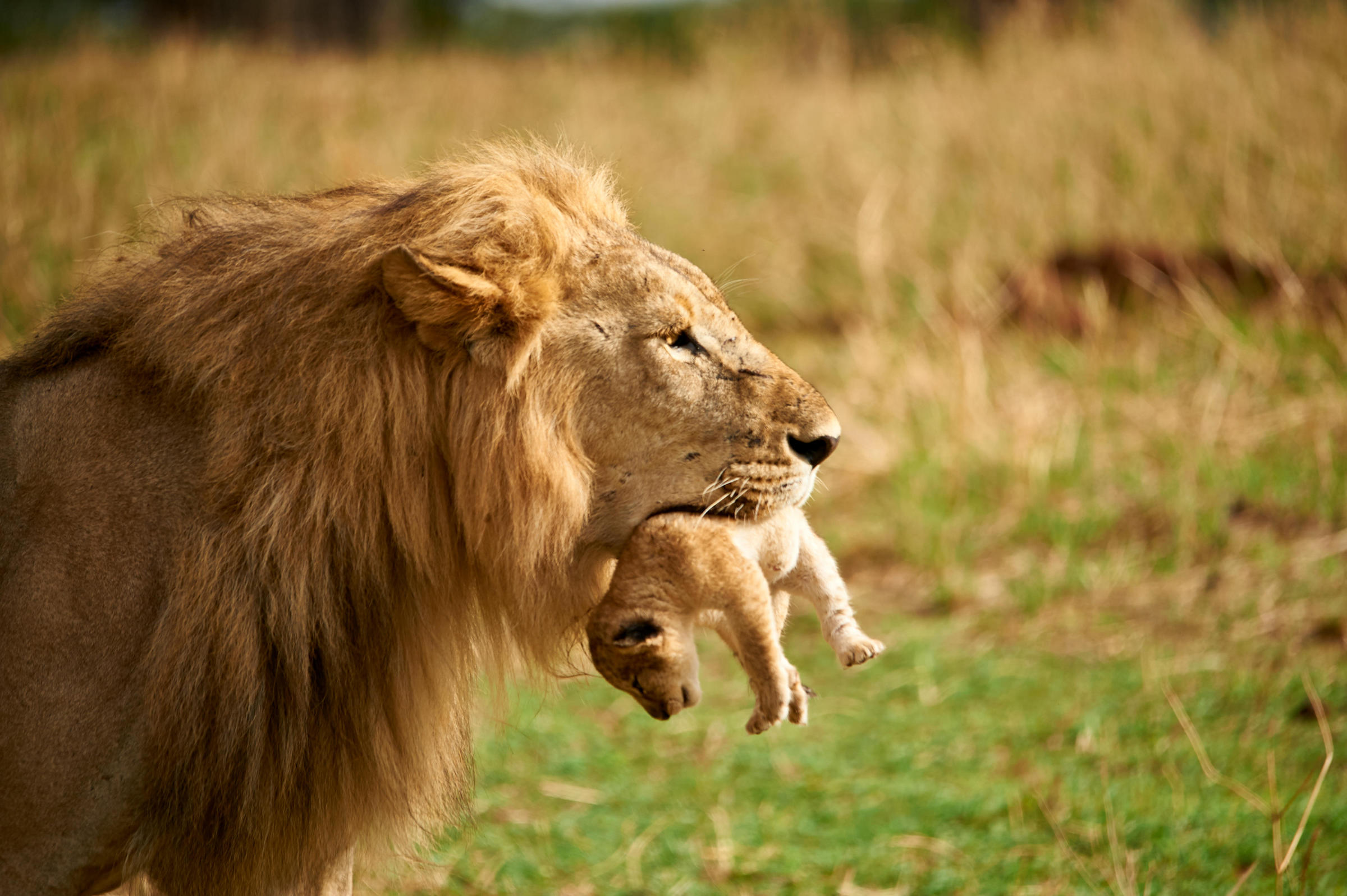
Why treat fatherhood as a miracle?
This was my question when Murphy, a bald eagle, became a viral sensation for being a great stepdad. At first, Murphy tried to incubate a rock at the World Bird Sanctuary in Valley Park, Missouri. When the sanctuary received an eaglet that had dropped out of its nest, they allowed Murphy to move from rock-sitting to actual offspring care. He did so well that the eaglet is expected to be released around Father’s Day.
But have you ever seen a female eagle getting this kind of attention for raising young? Motherhood may be cherished but is taken for granted. Since we’re mammals, we view maternal care as part of life—no big deal. Paternal care, in contrast, is seen as optional and is often therefore excessively praised. In Murphy’s case, it deserves accolades, a vast online fan club, and special merchandise.
Our biased admiration for good fathers is misapplied to a species, such as the bald eagle, in which biparental care is the rule. Murphy is just doing what eagle dads have always done and what the males of many birds do every spring. They are busy feeding their young as well as their mate for as long as she incubates. Some fathers, such as eagles, partake in incubation as well.

Finding good fathers in the animal kingdom isn’t hard, although admittedly harder than finding good mothers. The sea horse has perhaps the most developed paternal investment, with the male keeping the developing embryos in a pouch equipped with a placenta, almost as if he’s pregnant. But we also find fish and frogs in which the male raises the young inside their mouth, on their back, or in a nest. In mammals, we find excellent paternal care in several canid species, such as wolves and African wild dogs, and in some rodents and small South American monkeys. Male marmosets and tamarins lose weight while carrying the young. Mothers take the young only for nursing, leaving them on dad’s back for the rest of the time.
However, once we get to our closest primate relatives, there is little fatherly care. Protection is the primary and often only job of ape males. The reason that Western hunters in the old days brought back the skins, heads, and hands of silverback gorillas is because they were the only individuals to stand their ground. They performed bluff-charges to drive off the hunters, thus allowing their families to escape. Nowadays, thankfully, the same defensive actions only result in lots of pictures of imposing, chest-beating males.
In 2021, former Fox News anchor Tucker Carlson mocked U.S. Secretary of Transportation Pete Buttigieg’s paternity leave as “trying to figure out how to breastfeed.” It was Carlson’s way of saying that parenting newborns is women’s work. One common way to freeze gender roles in place is by calling some behavior “natural” and dismissing all other behavior as “unnatural.”
The idea that men are unsuitable for childcare is seemingly supported by the apes closest to us, chimpanzees and bonobos. The males of these species do very little with the young. No carrying, no feeding, no watching over them. However, they are perfectly capable of stepping up to the plate if need be. We get a glimpse of it after a mother’s death when an orphan is suddenly whimpering for attention. Adult male chimpanzees have been known to adopt a little one and lovingly care for it. The male will slow down his travel through the forest for the youngster, search for him if he’s lost, being as protective as any mother. Christophe Boesch documented at least ten adoptions by wild chimpanzee males in Taï Forest, in Ivory Coast. One adoption is featured in the 2012, Disneynature movie Chimpanzee, in which the alpha male took an orphan under his wing. Some males cared for the youngster for at least a year, and one male did so for over five years. According to DNA samples, adoptive males are not necessarily the biological fathers.

In Kibale National Park in Uganda, scientists witnessed an outbreak of respiratory disease that killed no less than twenty-five chimpanzees. Multiple orphans were the result. Since chimpanzees remain dependent on their mother for at least ten years, the usual outcome for young orphans is death. Four of them, however, were adopted by their adolescent brothers. These males would never move on without first checking that they had their little sibling in tow. Their attentiveness was remarkable given the tough social life of an adolescent trying to enter the male hierarchy.
Male bonobos can be highly protective, too. A striking example occurred once at the San Diego Zoo when its enclosure had a wet moat. The keepers had drained the moat for scrubbing and gone to the kitchen to turn on the water valve to fill it up. However, they were rudely interrupted by Kakowet, the alpha male, who stood screaming and waving his arms in front of their kitchen window. Several young bonobos had jumped into the dry moat to play but could not get out and would have drowned. Kakowet knew who controlled the water supply. After his alarm, the keepers descended into the moat with a ladder. They got all of the bonobos out except for the smallest one, who was pulled up by Kakowet himself.
Our species’ male caring potential is even more developed since we evolved nuclear families. Our species multiplies so successfully (or disastrously, some would say) thanks to male involvement and provisioning. In hunter-gatherers, a woman’s interval between births is around three years, whereas it is about five years in female apes.
Fatherhood changes the biology of men. New fathers experience a rise in oxytocin (the cuddle hormone) while their testosterone level drops. Men shift away from risk-seeking and mate-hunting toward a deeper commitment to their families. Their brains change as well. Neuroscience shows a more active and better-connected amygdala (emotional center) in the brains of men who are the primary caretakers in the family.
These changes should shatter any myth that men can never be good caretakers because they are not biologically “primed” for it. Instead of biology dictating our behavior, the connection between biology and behavior looks more like a two-way street. Biology has a reputation of being rigid and deterministic but is far more flexible and variable than people realize.
Keep this in mind whenever someone claims to know what is “natural” for our species. Most of the time, they have an agenda, and animal dads, from Murphy to Kakowet, would likely disagree.
More Must-Reads From TIME
- The 100 Most Influential People of 2024
- Coco Gauff Is Playing for Herself Now
- Scenes From Pro-Palestinian Encampments Across U.S. Universities
- 6 Compliments That Land Every Time
- If You're Dating Right Now , You're Brave: Column
- The AI That Could Heal a Divided Internet
- Fallout Is a Brilliant Model for the Future of Video Game Adaptations
- Want Weekly Recs on What to Watch, Read, and More? Sign Up for Worth Your Time
Contact us at letters@time.com